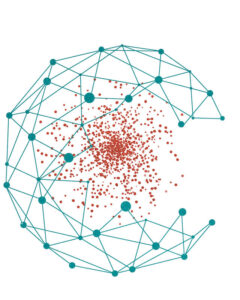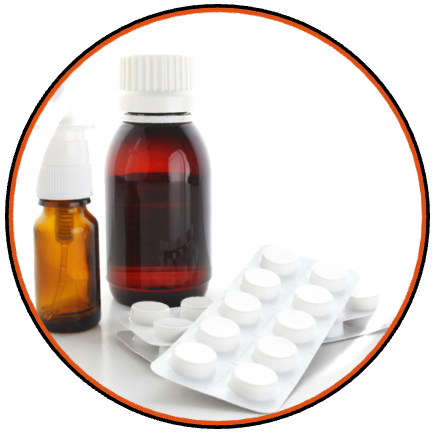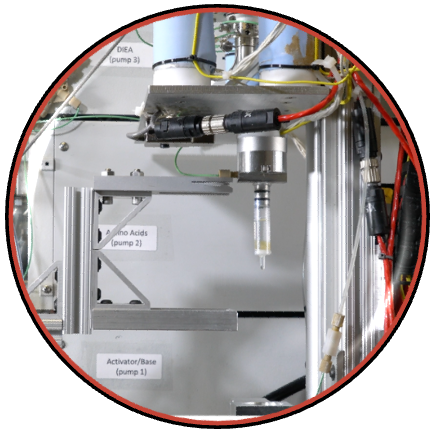Salarius Pharmaceuticals (Nasdaq: SLRX) (“Salarius” or the “Company”) and Decoy Therapeutics (“Decoy”) announce the completion of their strategic merger with the combined company now focused on advancing Decoy’s pipeline of peptide conjugate therapeutics engineered through its IMP3ACT™ platform that reduces the complexity of drug development and manufacturing.
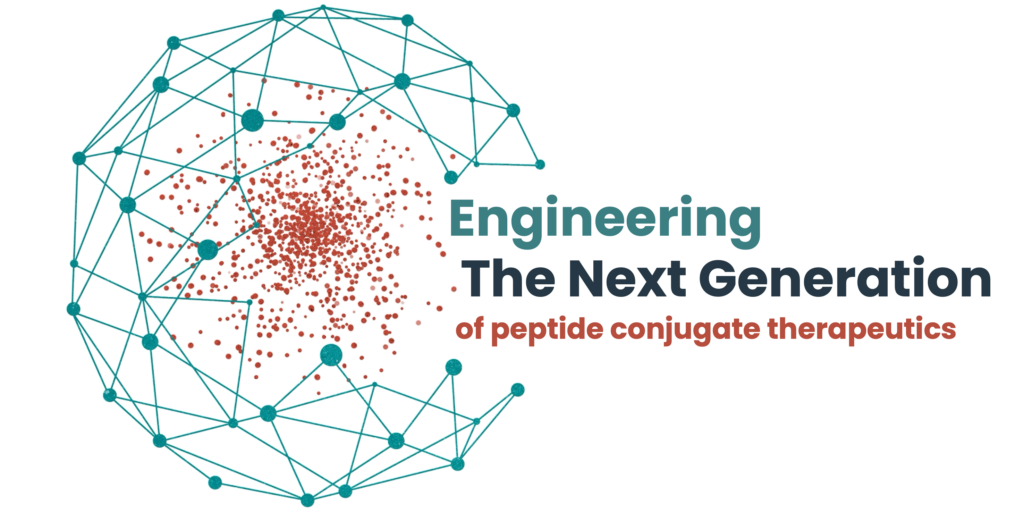
Supported By





Featured Press Releases
November 13, 2025
Applied AI/ML For Rapid Design of Therapeutics
A strong team composed of leading industry and academic experts dedicated to using computation to engineer the next generation of peptide conjugate therapeutics.
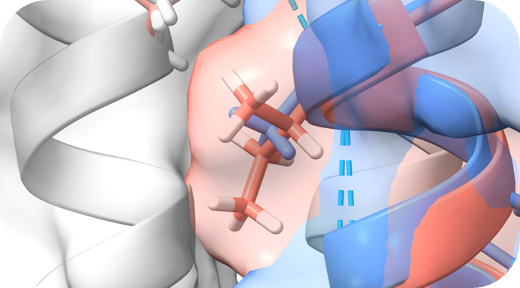
Focus on Areas of High Unmet Need: Respiratory Viruses and Colorectal Cancers
The “Big Three” respiratory viruses (Flu/COVID/RSV) are responsible for 15-20M medical visits every year in the US alone, and less than 20% of CRC patients are eligible for a modern biomarker targeted patient selection and therapy.
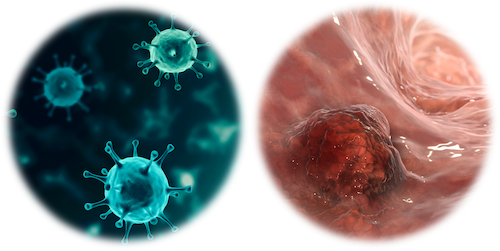
Maximize Probability of Success
We apply AI/ML to design all features of a good drug – affinity, pharmacokinetics, formulation, manufacturing – from the bottom-up to avoid costly downstream failures.
Fast, Reliable, Scalable Manufacturing
We are using our proprietary “single-shot” technology to build scalable and repeatable “platform” manufacturing for peptide conjugates which will allow us to bring new therapies from lab to clinic to commercialization with unprecedented speed.

Rapidly Approaching the Clinic
Our lead therapeutics candidate IND filing is targeted for 2026.
Broad Non-Dilutive Support
Research supported by Bill & Melinda Gates Foundation, J&J Blue Knight Program, BARDA, Google Cloud for Startups, Nvidia Inception Program, among others.
Our Vision
Protecting Health, Enhancing Lives
Decoy Therapeutics (Decoy Tx) believes everyone deserves to enjoy family, friends, travel and experiences without worrying about getting sick. We further believe that too many patients die from malignant diseases due to a lack of effective, targeted therapeutics. Lastly, we believe in developing medicines that are accessible and affordable to everyone, everywhere—empowering communities worldwide to lead healthier lives.
Our Mission
Engineering the next generation of peptide conjugate therapies to protect and expand patient lives.
Pipeline
We are committed to innovation and patient-centric drug development.
Broad-acting Fusion Inhibitor
Safe early intervention for 5M+ immune-compromised patients with minimal drug-drug interactions, unlike Paxlovid
Learn more
Pan-Coronavirus Inhibitor for Immunocompromised Patients:
- In the United States alone, over 10 million individuals are severely immunocompromised. These patients are at heightened risk of negative or life-threatening outcomes from coronaviruses, even in the era of endemic COVID-19.
- There are limited options for these patients. Antibody therapeutics, such as Evusheld, have not been able to keep up with viral evolution, and Paxlovid, a $2B+/year revenue drug, is limited in its usage because of significant interactions with other drugs that are highly prescribed in high-risk populations.
- Our lead program is a self-administered nasally inhaled pan-coronavirus fusion inhibitor that has shown in vitro efficacy against all known human coronaviruses, including all variants of COVID-19, and significant activity in multiple animal models. This self-administered nasal spray is expected to offer 8-24 hours of prophylactic protection, and to moderate disease severity when used post-infection.
Broad-acting Fusion Inhibitor
A single antiviral to treat the “big three” viruses that are responsible for 70+% of dangerous virally-driven lower respiratory tract infections
Learn more
Broad Respiratory Antiviral for Tripledemic (Flu/COVID/RSV):
- The “tripledemic” and related viruses are responsible for 70+% of virus-driven Lower Respiratory Tract Infections (LRTIs). According to the World Health Organization, LRTIs are the 4th leading cause of death globally and represent a major health burden for both healthy people and very large, high-risk populations including patients suffering from COPD, autoimmune disorders, chronic kidney disease diabetes, obesity, and the elderly.
- Employing the same mechanism of action and computational models developed in the pan-coronavirus program, we are exploiting highly-conserved structural similarities to design a single antiviral fusion inhibitor that will be effective against all the “tripledemic” and related viruses.
- We expect this inhaled, self-administered early intervention to be both a $15B+ commercial opportunity and a powerful global public health tool.
Peptide-drug Conjugate
Projected to be 2M+ new cases globally of CRC every year by 2030, yet < 20% of patients are eligible for a modern targeted therapy; We aim to change that.
Learn more
GPCR-targeted Peptide-drug Conjugate for Colorectal Tumors:
- Unlike for lung, blood, and breast cancers, there are limited modern targeted therapeutic options for colorectal cancers (CRC). Less than 20% of CRC patients are eligible for treatments that use precision biomarker targeting to select patients, significantly enhance efficacy, and decrease side-effects, yet colorectal cancers are expected to kill more than 1 million people per year globally by 2030.
- We are identifying G-protein Coupled Receptors (GPCRs) that are over-expressed in CRC tumors as the basis for novel biomarker-targeted peptide-drug conjugates (PDCs). We are using our platform to engineer peptide ligands to these targets and chemically conjugate one or more cancer therapeutics for specific intracellular delivery to tumor cells, creating targeted therapeutics that have biomarker-driven patient selection ‘built-in’.
- This strategy may also allow us to address rare disease like Familial Adenomatous Polyposis (FAP), a genetic disorder affecting approximately 50,000 individuals in the United States and Europe, in which nearly 100% patients are at risk of developing colorectal cancer by middle age. Currently, the standard of care involves preventative colectomy, which severely impacts quality of life.
Meet the Team
Board of Directors
Scientific Advisors
Dan Kuritzkes
MD
Harriet Ryan Albee Professor of Medicine and Chief of Infectious Disease, Harvard Medical School
Marc B. Garnick
MD
Gorman Brothers Professor of Medicine,
Harvard Medical School & Beth Israel Medical Center
Special Advisor, US FDA
Yonatan Grad
MD, PhD
Melvin J. and Geraldine L. Glimcher Associate Professor of Immunology & Infectious Diseases, T.H.Chan School of Public Health
Current Focus Areas
Protecting Patients from Infectious Diseases
Problem:
Respiratory infections continue to place a huge burden on healthcare systems worldwide, particularly with the rise of the “tripledemic”: Influenza, COVID-19, and RSV. We need better, broad acting antivirals to prevent and treat people, reducing the significant burdens of respiratory illness.
DECOY TX Solution:
Broad-Acting Antivirals
We are engineering a new class of antiviral therapeutics that can target multiple viral pathogens with a single drug. By leveraging structural similarities across viral families, we aim to create broad-spectrum antivirals that address critical gaps in current treatments for respiratory diseases like Influenza, COVID-19, and RSV.
Bringing Novel Therapies to Patients Suffering From Cancer
Problem:
Colon cancer treatments have seen little innovation over recent decades, still relying on combinations of 5-FU, platinum, irinotecan, and anti-VEGF therapies. There is a critical need to identify new cell membrane targets to expand precision treatment options for the majority of colon cancer patients, including those with advanced or drug-resistant tumors.
DECOY TX Solution:
GPCR-targeted Conjugates
G-Protein Coupled Receptors (GPCRs) play a key role in many serious diseases, including cancer. Our work in this area focuses on developing GPCR-targeted peptide drug conjugates to treat GI tumors, including colorectal cancer, offering new hope for patients with limited treatment options.
Trailblazing Science, Full-Stack Drug Discovery
Engineering Peptide Conjugate Therapeutics
Peptide-conjugates are at the forefront of a new era in drug development. Traditionally, short peptides alone have faced challenges in becoming viable drugs due to their rapid metabolism before reaching their target. However, by linking peptides to secondary moieties, we enhance their drug-like properties, ensuring they reach their intended destinations in the body more effectively.
A Proven Drug Class
Peptide-conjugates such as Wegovy™, Mounjaro™, Ozempic™ have had tremendous success in diabetes and obesity. This underscores the immense potential of this drug class in addressing significant medical needs.
Expanding Beyond Diabetes and Obesity
At Decoy, we believe that the potential of peptide-conjugates goes far beyond their current use. We seek to leverage the modular nature of peptide-conjugates to create groundbreaking therapies applicable to a wide range of human disease states and medical needs, from chronic conditions requiring long-term treatment to acute diseases needing immediate intervention.
Decoy's Advanced Peptide Engineering Platform
Our Decoy Platform tames the complexity of the peptide-conjugate modality by using artificial intelligence (AI), coupled with world-leading high-speed synthesis and a strong understanding of target biology, to rapidly interrogate and reengineer natural peptides for binding to disease mediating targets. We can design and manufacture viable new peptide-conjugate drug candidates in as little as a few days to weeks, which enables a rapid design-build-test-learn engine that generates novel and proprietary data, optimizing for drug-like properties. Our multi-parameter approach simultaneously tunes a broad set of characteristics important for development and commercialization of the drug, such as chemical affinity, agonist/antagonist activity, enzymatic resistance for enhanced pharmacokinetics, formulation, and manufacturing.
Affordable Low-cost manufacturing methods that tap into existing infrastructures
Safe No drug-drug interactions or harmful metabolites, predictable properties
Specific Highly selective and tunable affinity with great pharmacodynamic control
Stable Pharmacokinetic control, improved half-life and select tissue bioavailability
Versatile Multi-functional as a treatment vehicle or payload
Modular Programmable, plug and play components
Strong IP Expansive design space for peptides and their conjugation partners
Decoy's Discovery Platform
Covering the Entire Drug Life Cycle
In Silico Design
Molecular dynamic simulations & prescriptive machine learning to create efficient drug-like lead generation and proprietary datasets.
Peptide Engineering & Conjugation Chemistry
Proprietary flexible and stable framework transforms peptide research into effective medicines.
Formulation Development
Engineering peptide conjugate solubility and stability for ease of formulation development and adaptable dosage forms.
In Silico Design with Decoy's Engine
As “Eroom’s law” states, traditional drug discovery costs have risen exponentially over the years. We’re breaking that mold by utilizing highly targeted discovery campaigns infused with efficient, scalable deployment of in silico tools centered around design-build-test-learn cycles to rapidly engineer peptide drug conjugates.
State-of-the-Art Modular Peptide Engineering & Conjugation Chemistry
Flexibly optimizes for drug-like properties, allowing for rapid and modular therapeutics.
Formulation and Product Development
Traditionally peptides as drugs have suffered from very low bioavailability, limiting their delivery to intravenous (IV) or subcutaneous (SC) routes. Decoy has the capability to develop stable and pharmaceutically acceptable formulations containing our proprietary peptide conjugates for administration via a range of delivery routes and device formats, including:
- Nasal (topical/mucosal, nose-to-brain, etc.)
- Pulmonary (local and systemic delivery, liquid and dry powder-based formulations, etc.)
- Injectable (IV, SC, patch, depot, etc.)
- Oral

We are engineering our peptide conjugates to possess the required physicochemical and pharmaceutical properties to enable each of these routes of delivery, including solubility, chemical stability, resistance to proteolytic degradation and compatibility with a range of pharmaceutically acceptable excipients.
Robust Manufacturing for Global Impact
We leverage innovations in peptide chemical synthesis to develop synthetic strategies that can easily tap into existing infrastructure. The efficiency of our Decoy Platform enables us to achieve peptide conjugate manufacturing readiness faster than conventional drug development processes, leading to reduced manufacturing costs and accelerated delivery of broad-spectrum drug candidates. By employing solid phase peptide synthesis (SPPS) in an “All-in-One” manufacturing approach, Decoy optimizes the assembly of complex peptide-linker-functionalized compounds, enhancing the speed, efficiency, and predictive value of the Decoy Platform. We are also committed to further developing the “All-in-One” manufacturing process to be scalable to quantities useful for clinical trials.






















